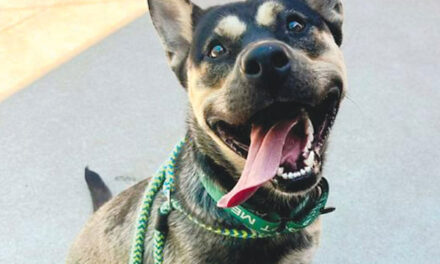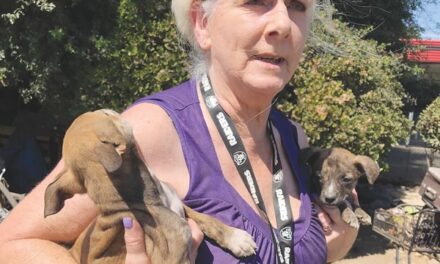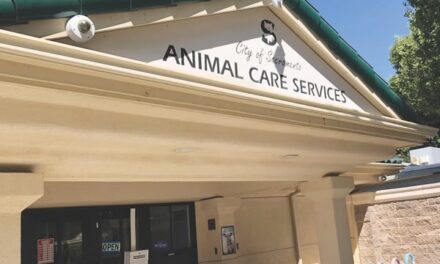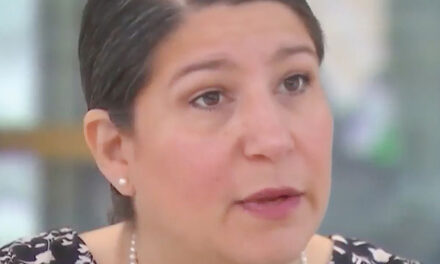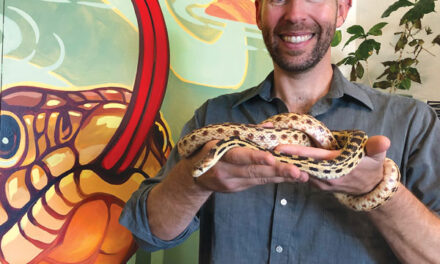You’ve heard the myths. Pit bulls have locking jaws. They are unpredictable, stronger and more aggressive than other dogs.
Here to debunk these misconceptions is Dawn Capp, director and founder of Chako Pit Bull Rescue in Sacramento.
“These are all myths,” she says. “No dog breed has locking jaws. Their jaw strength is not any more powerful than other breeds their size,” adds Capp, citing a National Geographic study that measured the strength of dog bites in pit bulls, German shepherds and rottweilers. Pit bulls came in last.
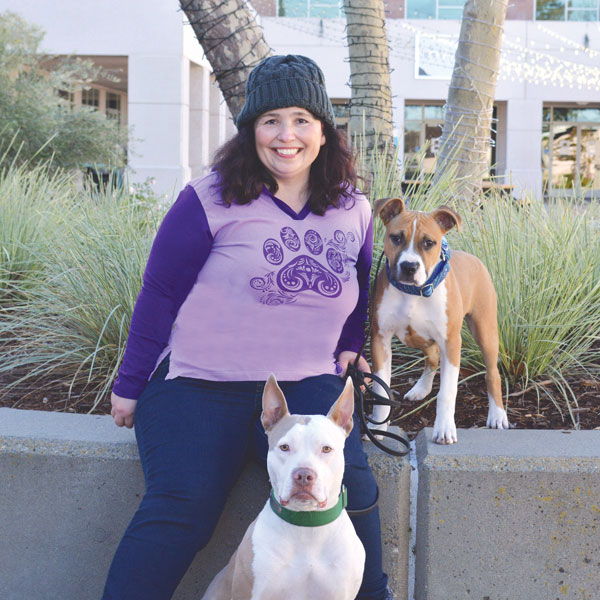
The pit bull—a term used loosely to describe bulky-head canines—is a hybrid of the bulldog and terrier. The breed falls into a broad category that includes American pit bull terriers, American Staffordshire terriers and Staffordshire bull terriers.
“Because you have this mix, pit bulls have a wider range of both physical appearance and personalities, depending on which side of the heritage is emphasized genetically,” Capp says. “That’s why there is so much confusion on identifying pit bulls. They are a bit more diverse than, say, your golden retriever.”
Pit bulls were bred in 19th century England to fight bears and other animals for human entertainment. When this cruel sport was outlawed in the late 1800s, unscrupulous owners turned their canines on each other. The combination of terrier and bulldog produced swift, agile mutts with the strength and enthusiasm for fighting.
While some pit bulls were selected and bred for fighting, others were bred for work and companionship. In the U.S., by the early 1900s, the pit bull was often chosen as a family pet, sometimes referred to as a “nanny dog” for its intelligence, gentleness and loyalty.
Perception changed with the Animal Welfare Act of 1976, which criminalized dog fighting. Resulting media coverage shined a light on the vicious sport and the dogs involved, mainly pit bulls, casting a dark shadow on the breed that still follows them today.
Capp founded Chako Pit Bull Rescue, named after a childhood bulky-head companion, in 1997 during grad school in Texas. She visited a shelter to adopt a pit bull and was told the breed, even puppies, was automatically euthanized. “They looked at me and said, ‘Why do you want a pit bull. Only drug dealers want pit bulls.’”
Little did she know the encounter would change her life. “I had this image of my dog Chako that I grew up with,” she says. “What if he ended up in a shelter and was euthanized just because he was a pit bull?” Chako Pit Bull Rescue was born.
Capp bought a house, put some kennels in the backyard and began fostering two or three dogs at a time. “After I graduated, I came back here and Chako came with me.”
Chako’s goal is to alleviate the persecution of pit bulls. The volunteer group fosters and places the breed in good homes, promotes responsible dog ownership, offers free and low-cost training classes, and fights breed discrimination.
“I think we’ve made a little headway in getting the public to understand pit bulls better,” says Capp, an attorney. “But not a lot of progress in the plight of the breed.”
For example, “it’s really hard to find a place to accept your pit bull if you rent.” Many insurance companies have breed blacklists. “A blacklist is breed discrimination by private insurance companies that say we will not issue you a policy if you have a pit bull,” Capp says.
“Now you have to turn your dog into a shelter because you can’t find a place to live. If we got rid of insurance blacklists and just looked at the behavior and history of that individual dog—Does it have a bite history? Has it taken an obedience class?—we would make milestones in helping pit bulls stay out of the shelters.”
Pit bulls dominate our local shelters. In 2020, the county’s Bradshaw Animal Shelter took in 655 dogs identified as pit bulls. In 2019, prior to decreased intakes due to COVID, the county shelter received 1,154 of the breed. In 2020, the city’s Front Street Animal Shelter took in 714 pit bulls; in 2019, it received 1,240.
In addition to Capp’s efforts to end breed blacklists, she gives safety presentations at schools and community groups, provides expert testimony when issues related to pit bulls arise and lobbies lawmakers to fight breed-specific legislation.
“I don’t like discriminating against any one breed of dog,” she says. “I think the law should apply equally to all dogs and all dog owners. And it should emphasize responsible dog ownership all around.”
The American SPCA agrees: “All dogs, including pit bulls, are individuals. Treating them as such, providing them with the care, training and supervision they require, and judging them by their actions and not by their DNA or their physical appearance is the best way to ensure that dogs and people can continue to share safe and happy lives together.”
For information on Chako, visit chako.org.
WE PAY TO SPAY
The Sacramento SPCA’s “We Pay to Spay” program provides free spay and neuter surgeries for pit bulls and pit bull mixes in Sacramento County. As of 2020, the program has sterilized more than 14,000 pit bulls at no cost to their owners. Visit sspca.org/wepaytospay.
Cathryn Rakich can be reached at crakich@surewest.net. Follow us on Facebook, Twitter and Instagram: @insidesacramento.





